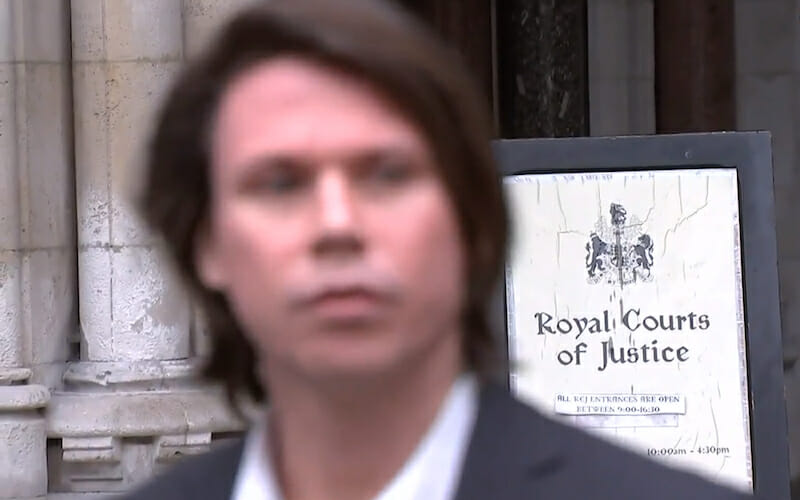
Lauri Love, Hacking and Extradition
“Horse-trading determines who goes to jail and for how long. That is what plea bargaining is. It is not some adjunct to the criminal justice system; it is the criminal justice system.” – US Supreme Court Justice Kennedy (2012)
The February 5 decision of the British court refusing to permit the extradition of hactivist Lauri Love was more than an opinion. It was a reproach. While a quiet confidence had been expressed that the decision would go his way, not permitting his extradition might also dint various trans-national security efforts. Prosecutors were taking note.
Love had been accused of hacking into the systems of various US institutions: the FBI, NASA and the US Central Bank. Such accusations were so grave as to endanger Love with a potential prison sentence of 99 years – provided the US authorities could convince the courts that extradition from the UK was warranted.
They were initially successful, convincing District Court Judge Tempia sitting at Westminster Magistrates’ Court that any harm Love might suffer was conjectural. Despite being diagnosed with Asperger Syndrome, antibiotic resistant eczema and major depression, not to mention finding that Love was a high suicide risk, the 2016 ruling favoured extradition. Love’s appeal was heard on November 29-30 by the Lord Chief Justice, Lord Burnett of Maldon and Mr. Justice Ouseley.
US prosecutors do not take kindly to hactivists. Aaron Swartz, known for developing the RSS software undergirding the syndication of information on the Internet, remains one of the most notable, and tragic, casualties in this instance. What he faced was a weapon commonly used in such instances, the brutally all capturing Computer Fraud and Abuse Act of 1986. His alleged crime was to have enabled free access to an academic website, JSTOR through the MIT computer network. This anti-capitalist sin meant a possible fine of up to $1 million with a princely jail term of 35 years. Swartz preferred suicide.
Supporters of Love preferred to focus on keeping the trial local, citing the case of Gary McKinnon, who was also pursued for computer hacking offenses. Attempts to seek McKinnon’s extradition failed due to the refusal by the then Home Secretary and current UK Prime Minister Theresa May, to do so.
“After careful consideration of all the relevant material,” May explained in October 2012, “I have concluded that Mr. McKinnon’s extradition would give rise to such a high risk of him ending his life that a decision to extradite him would be incompatible with Mr. McKinnon’s human rights.” In light of that case, vulnerable defendants can make the claim for a forum bar, thereby preventing the extradition from going through in cases where it “would not be in the interests of justice.”

With all that said, adding the “forum bar” to the UK Extradition Act 2003 in 2013 did not alter the reluctance on the part of judges to prevent extradition requests on grounds of forum. Prosecutorial wisdom, it seemed, was to be respected. They, the assumption went, would have a deeper sense of the facts.
Central to the entire process was the possibility that Love would, in reaching the United States, even have access to a fair trial. Would he, for instance, be fit to plead? The pre-trial detention facilities at the Metropolitan Correctional Centre, located in Manhattan, or the Metropolitan Detention Centre at Brooklyn were cited as inadequate in supplying mental health care. This was even more significant given that Love has been found to be a suicide risk.
A crucial factor in the Love case was the absence of the prosecutor’s belief as to whether the United Kingdom was not the most appropriate forum to try the defendant. Previous decisions had essentially deemed this a neutral matter. As the High Court explained in Shaw v Government of the United States of America [2014] EWHC 4654 (Admin), “The judge has to ask whether there is a belief; but if there is not, then he cannot have any further ‘regard’ to this factor.”
The judges in Love’s case effectively repudiated this approach, claiming that the absence of prosecutorial belief on the subject of the appropriate forum was a more than telling factor in considering extradition. Such “silence is a factor which tells in favour of the forum bar.”
The utterance sent legal analysts into a spin of speculation. The absence of a prosecutor’s belief regarding the appropriateness of forum had certainly been a common practice. The decision in Love, claimed Ben Lloyd, suggested that prosecutors had to show greater diligence in making their claim for extradition, certifying, for instance, that the UK was not appropriate. The lack of involvement of a domestic prosecutor, for instance, “could be taken as a factor in favour of the operation of the forum bar.”
The judges did not stop there. The lower court had, in their view, erred in not accepting the seriousness of the material supplied by Professor Kopelman, Emeritus Professor of Neuropsychiatry. According to that medical assessment, Love’s custody in the United States would be crippling. “His ability to cope with the proceedings in the trial, to make rational decisions, and to give evidence in a satisfactory manner would be severely compromised.”
In the words of the judges, “it is clear from the rest of his evidence that severely worsening depression, with the possible onset of psychotic imagery was exactly what Professor Kopelman anticipated.” Such factors were more than mere conjectures.
Love also had a demonstrable connection to family and home. “His entire wellbeing is bound with the presence of his parents. This may now have been enhanced by the support of his girlfriend. The significance of breaking those connections…demonstrates their strength.”
Having been foiled in both the McKinnon case and that of Love, US prosecutors will have to identify different routes when nabbing their quarry. Hacktivists weighed down by the baggage of mental health will prove a particularly difficult proposition. The greatest challenge remains: convincing British judges of the suitability of a judicial forum beset by decline and ruin.

